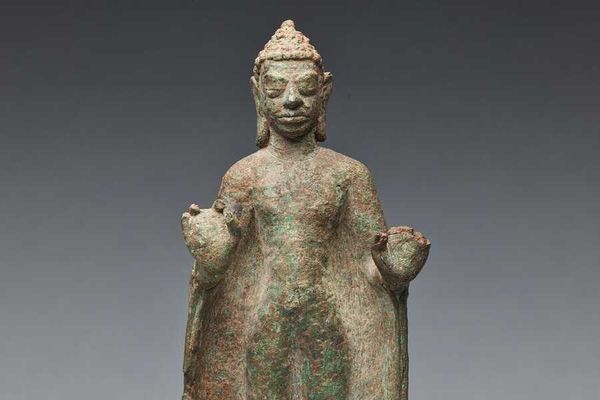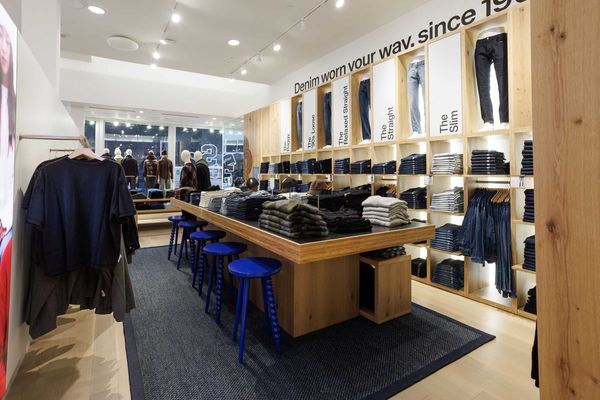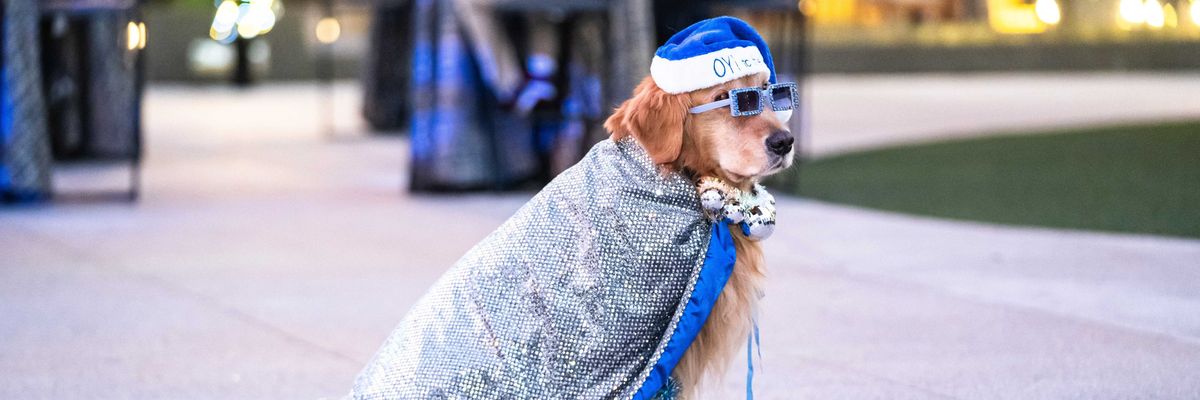Can San Francisco’s commitment-phobic reputation really be blamed on aggressive career women, too much therapy or online dating? Or could it be something much more basic than that?
Once upon a time—well, a year and a half ago—I had a boyfriend in San Francisco. Joe was 41, 6 feet tall, bearded, a creative director in advertising, given to wearing plaid and Kangol hats, and he lived in an art-filled apartment overlooking Dolores Park. I wrote an article about him for a national magazine, which recounted how, after our second date, Joe professed “commitment issues.” I left out the part about Joe’s earnest angst over the several “perfectly wonderful” women he left because he “just couldn’t take the next step” and the many hours we spent talking about his fears.
Instead, I wrote about my neediness with my ex-husband, and how I didn’t want to repeat it with Joe. I spun the story of discovering I already had all the love I needed, whether or not I secured Joe’s, how I was ready to walk away—with acceptance—when Joe finally said, “I love you.”
Naturally the very month the article hit the newsstands, the other shoe dropped.
Six months after Joe’s three-word breakthrough, his rhetoric shifted from “wanting to get past his fears” to “I don’t know if I’ll ever get past them.” I went over to his apartment for a talk that I suspected might be our last. Joe wasn’t home yet. I let myself in. A black notebook lay in the center of his kitchen table. I knew it was his journal. Shamelessly, I opened it. On one of the first pages, dated a few months earlier, was an entry about what he was doing to “wonderful Rachel”—the tingle of recognizing my name in his loopy, artsy handwriting soon passed.
I kissed Lauren, and I have another date with Julie. I broke up with him that night.
I looked for solace. I Googled. Very nice story, surfergirl77 had written on a message board about my ironically timed magazine piece. I used to live in SF, and I had to chuckle, because almost every guy in SF is like Joe. Totally noncommittal with the gals chasing after ’em.
Over the next year of informal sociological research, I realized I was the last local single woman to get this memo. All my girlfriends had stories of SF men who used the personals sites to browse the city’s wealth of attractive, smart women and “add to cart.” They spoke wistfully about how men in Chicago hung on to a good woman, how guys in New York City wouldn’t dream of going dutch. San Francisco men were clearly “sissies” intimidated by career-driven women.
Despite the grass-is-greener tint, a picture of the SF singles scene emerged: The prevalence of online dating due to our tech leanings; the confluence of creative, migratory people; the area’s penchant for therapy (Joe had taken me to his therapist of 10 years to receive empathy for his commitment issues). It all amounted to a particular flavor of romance: one I was souring on.
But unless I was willing to up and move, what was I supposed to do about it?
Then one day it came to me—the obvious, that is. SF singles are trapped in this loneliness together. The women approach men as enemy combatants, and then wonder why they cower. The men sense the women’s disdain, and then wonder why they have trouble committing. We needed a cease-fire, and someone had to lay down arms first. Why not me?
I decided to try approaching men in “good faith.” The first thing I did was to stop using the computer as a portal to meet men. Instead of waiting for that next email from a stranger, now I opened up to smiling in line at the burrito shop and striking up conversations at the BART station. Getting off-line pushed me toward new ways of real-world meeting. Tango dancing. Playing pool. Singing in a piano bar.
I also began treating men the way I wanted to be treated, as a human being, not as a romantic target. No angling or gaming. I became more relaxed, more open.
The men I interacted with seemed more open, too.
The cease-fire seemed to be working—except I hadn’t met anyone I was interested in.
Then one night, in a Mission District tango class, I met Paul. Dark and slim in an impeccably tailored suit, he was a native Frenchman with a Ph.D. now commuting from SF to Palo Alto to do postdoctoral work at Stanford. He was at the class with an elegant older woman, but they seemed to be just friends—especially when he turned his back to her to talk with me. He asked me to go out salsa dancing, and took my number.
But when I showed up at the salsa club and realized he knew half the women there, I started to sense he might be a cad. He wasn’t rude, but he wasn’t date-like. When I began to loosen up on the dance floor, he tapped my sternum with a devilish grin and said, “There’s a woman in there waiting to get out—I can see it.”
Ouch. And the old reactions kicked in. How dare he? But instead I took a deep breath and, without guile or defensiveness, I said, “I don’t think you know me very well, but I suppose there’s always room to have more fun.” When he asked me out dancing again, I went. This time he brought another woman friend, too: a beautiful doctor from Montreal. So, I was just a dance partner. And yet I thought he held my gaze a beat too long as I left.
“Is he not the most adorable thing you’ve ever seen!” I said on the phone to my friend Meredith, after emailing the photo I’d found through Google. A few months before, when Meredith had been dating a fear-mongering guy remarkably similar to Joe, I’d given her a cheesy self-help book about commitment-phobes that had helped her gain perspective. Now she returned the favor.
“Hold on,” she said. “Two weeks ago this guy was a cad, and now you’re smitten? Is it possible you go for commitment-phobic guys because you’re actually terrified too?”
I thought about the interested men I had passed on, some just as attractive and talented as Paul, with only one discernible flaw: They seemed genuinely available. When I tried to picture having a relationship with one of them, it freaked me out in a similar way to the squirming discomfort I had felt during the three years I was married—a fear that I was stuck.
Meredith, of course, was reading the follow-up to the cheesy self-help book I’d given her. She loaned it to me, and I scanned it. It all sounded familiarly repetitive until I read this little diamond-in-the-rough passage at the very end: Opening yourself to love means “accepting your place in human history.”
Whoa. Could that be the real reason for San Franciscans’ inability to settle down? Are we so attached to the idea of being exceptional that we just can’t fathom settling—which would mean, in this case, settling down into the great ordinary mass of humanity? Is long-term love (as opposed to sex and romance) just too ordinary for San Franciscans?
A few weeks later, I returned to tango class still weighing this deep thought. Paul wasn’t there, but his elegant older friend was. She was complaining to a friend about San Francisco men. Amused, I told them about Paul at the salsa club. Her face fell. She and Paul, she said, were “friends with benefits.”
I felt for her, but mostly I felt sorry for Paul. How apprehensive did this smart, handsome, charming man have to be to limit himself to something as shallow as “friends with benefits” as he approached middle age? About as fearful as I had been in nearly chasing him, I guessed.
I watched the couples on the floor doing the tango, and you could tell which ones had danced together for years, how much more beautifully they moved. There was trust in their embrace.
A little zip of fear ran through me. And then, a desire to try.
*Taken from the pages of 7x7’s April Sex and Love Issue, now on newsstands.
Questions about love, sex and relationships in San Francisco? Send them to our Two Sense editors at Twosense@7x7.com, and they might just answer them on their weekly column.
Got feedback? Send our editors a letter or add a comment below.




















